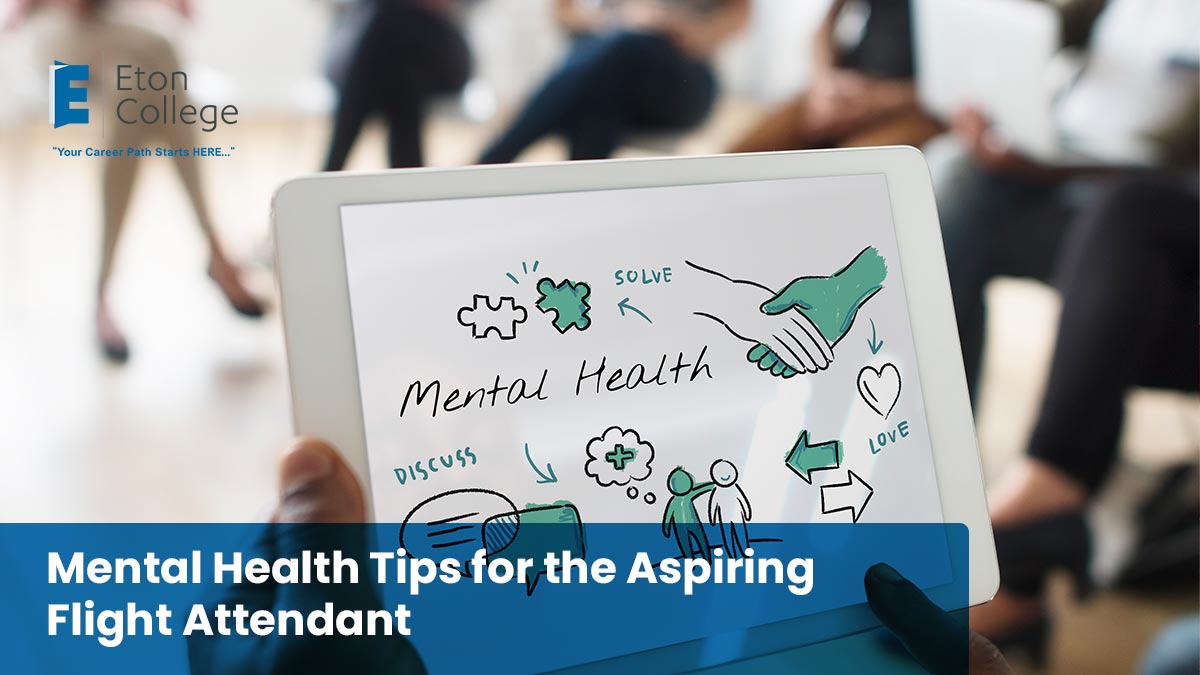Key Takeaways
- Prioritize self-care by establishing healthy habits and routines to manage stress.
- Practice mindfulness techniques like deep breathing and meditation to stay grounded during high-pressure situations.
- Build a supportive network of friends, family, and fellow flight attendants to navigate challenges together.
- Set clear boundaries between work and personal life to maintain balance and avoid burnout.
- Don’t hesitate to seek professional help when needed, whether through airline resources or personal counseling services.
Pursuing a career as a flight attendant can be exciting and fulfilling, but it also comes with unique challenges that can affect mental health. Long hours, irregular schedules, and frequent time away from home can lead to stress and fatigue. For aspiring flight attendants, maintaining strong mental health is crucial in preparing for the demands of the job. This article explores effective mental health strategies to help you navigate your journey toward becoming a flight attendant and thrive in this rewarding career.
Prioritize Self-Care
In the fast-paced aviation industry, taking care of yourself physically and mentally is essential. Self-care isn’t just about pampering yourself—it includes adopting healthy habits that can help you manage stress and stay balanced. Establish a routine that incorporates regular exercise, nutritious eating, and sufficient rest, even when you’re on the go. The unpredictable nature of a flight attendant’s schedule can make it challenging to stick to a routine, but prioritizing your well-being is key.
Aspiring flight attendants should also focus on practicing self-compassion. It’s easy to feel overwhelmed during flight attendant preparation, especially when learning new skills and facing demanding schedules. Remember to be kind to yourself and allow time for relaxation and recovery when needed.
Develop a Mindfulness Practice
Mindfulness can be a powerful tool in managing the stressors that come with a flight attendant’s career. Practicing mindfulness involves staying present in the moment and being aware of your thoughts and emotions without judgment. This technique can help you remain calm under pressure and handle challenges more effectively.
Incorporating short mindfulness exercises, such as deep breathing or meditation, into your daily routine can provide immense benefits. During moments of turbulence—both literally and metaphorically—mindfulness helps you stay grounded. These practices can also help you improve your emotional regulation and better cope with the high demands of the job.
Build a Strong Support Network
Building a supportive community is essential for flight attendants, both personally and professionally. Connecting with fellow flight attendants, family, and friends can provide much-needed emotional support, especially during challenging times. Having a network of people who understand the demands of your job can make a significant difference in your mental well-being.
For aspiring flight attendants, connecting with mentors or colleagues during your flight attendant preparation can also offer guidance and encouragement as you navigate your journey. Online forums and social media groups dedicated to flight attendants can be another valuable resource for finding support and sharing experiences.
Establish Boundaries Between Work and Personal Life
It’s easy for a flight attendant’s career to blur the lines between work and personal life, especially when working irregular hours and traveling frequently. Establishing clear boundaries can help you create a sense of balance, even with a demanding schedule.
Aspiring flight attendants should practice setting boundaries during their training to ensure they’re prepared for the fast-paced lifestyle ahead. Learn to say “no” when you need time for yourself and prioritize personal time on your days off. Finding a healthy balance between work and life is crucial to maintaining long-term mental and emotional well-being.
Seek Professional Help When Needed
While self-care, mindfulness, and a support network are all valuable strategies, it’s important to recognize when you may need additional help. Seeking guidance from a mental health professional can provide you with the tools to manage stress more effectively. Whether you’re struggling with anxiety, depression, or burnout, professional help can offer support and solutions tailored to your needs.
Many airlines offer mental health resources to their employees, including counseling services and wellness programs. As you begin your career, take advantage of these offerings to ensure you’re maintaining your mental health throughout your journey as a flight attendant.
Begin Your Flight Attendant Career
Choosing the right flight attendant certification program in Vancouver is an essential first step in pursuing a career in aviation. With excellent options like Eton College, Canadian Tourism College, and Vancouver Aviation College, these programs offer a strong blend of classroom learning and practical experience. This comprehensive preparation will help you succeed in the competitive aviation industry. If you’re ready to start this exciting journey, Vancouver’s top flight attendant schools provide an ideal foundation for a rewarding and adventurous career in the skies.
FAQ: Mental Health Tips for the Aspiring Flight Attendant
- How can I manage stress during flight attendant training?
Prioritize self-care by maintaining a healthy routine, practicing mindfulness, and seeking support from peers and mentors. Setting boundaries and creating time for relaxation is also key. - What are some mindfulness techniques for flight attendants?
Mindfulness techniques such as deep breathing, meditation, and staying present in the moment can help reduce stress and improve emotional well-being during challenging situations. - How can I balance work and personal life as a flight attendant?
Establish clear boundaries by setting aside personal time on your days off, communicating your needs with loved ones, and avoiding overcommitting to work when you need time for yourself.- What should I do if I feel overwhelmed during flight attendant preparation?
Take regular breaks, practice self-compassion, and reach out to a support network. If you continue to feel overwhelmed, consider seeking guidance from a mental health professional.
- What should I do if I feel overwhelmed during flight attendant preparation?
- Are mental health resources available for flight attendants?
Yes, many airlines provide access to mental health resources such as counseling services and wellness programs. It’s important to utilize these resources if you need additional support.




